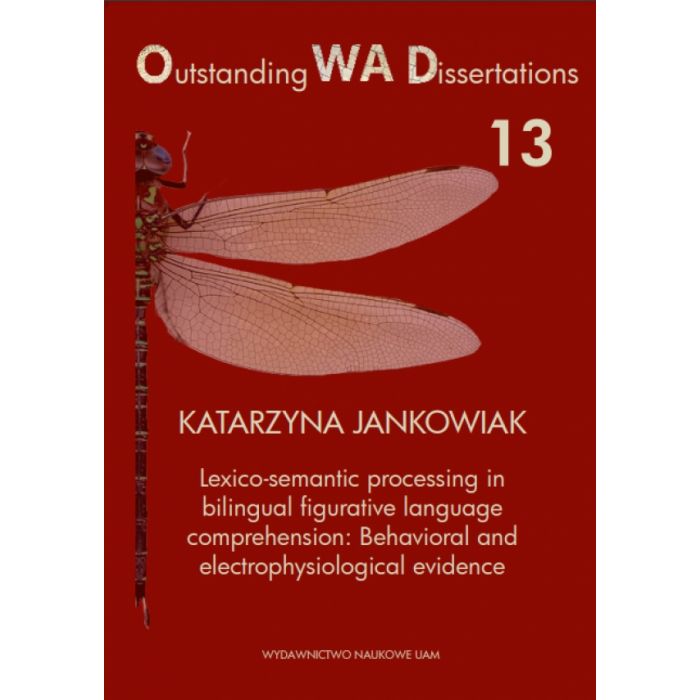Lexico-semantic processing in bilingual figurative language comprehension: Behavioral and electrophysiological evidence
- In Stock: in stock
- ISBN: 978-83-232-3480-7
- Category: OUTLET, English Philology, Linguistics, Outstanding WA Dissertations (OWAD)
- Year of publication: 2019
This book is aimed to show how late proficient unbalanced Polish (L1) – English (L2) bilingual speakers process novel and conventional metaphors in their L1 and L2. To this end, behavioral and event-related potential data were collected from participants, who performed a binary semantic decision task for the presented utterances. Behavioral as well as event-related potential results indicate that while the comprehension of novel meanings is language-independent, conventional metaphor comprehension seems to be more resource intensive in L2 relative to L1. Additionally, the results point to a less automatic and delayed processing of lexico-semantic information in the non-native as opposed to the native tongue, which might be modulated by language dominance. Taken together, the observed results suggest that late proficient unbalanced bilingual speakers are less sensitive to the levels of metaphor conventionality in L2 than in L1, and point to a less automatic lexicosemantic processing in the non-native compared to the native tongue.
W monografii przedstawiono wyniki analizy procesów poznawczych zaangażowanych w rozumienie języka metaforycznego w kontekście dwujęzyczności. Autorka omawia teoretyczne założenia związane z rozumieniem języka metaforycznego i przetwarzaniem języka w dwujęzyczności oraz prezentuje ilościowe metody badawcze, które można wykorzystać podczas eksperymentów poświęconych rozumieniu języka. W przeprowadzonym i opisanym w książce eksperymencie elektrofizjologicznym u badanych osób obserwowano czasy reakcji oraz zmiany potencjałów wywołane w odpowiedzi na metafory nowe, metafory utarte, wyrażenia dosłowne oraz bezsensowne zaprezentowane w języku polskim (L1) oraz angielskim (L2). Wyniki behawioralne oraz elektrofizjologiczne wskazują, że osoby biegle posługujące się językiem obcym, których językiem dominującym jest język rodzimy, są mniej wrażliwe na poziom konwencjonalności wyrażeń metaforycznych w L2 niż w L1 oraz przetwarzają informacje językowe mniej automatycznie w języku obcym niż w języku ojczystym.
| Detailed information | |
|---|---|
| Table of contents |
Download file

|
| Introduction |
Download file

|
|
|
|
| Publication Version | printed |
| Format | 17,0 x 24,0 |
| Type of publication | Monografia |
| Edition | I |
| Series | OWAD 13 |
| ISSN | 2450-9817 |
| ISBN | 978-83-232-3480-7 |
| Number of pages | 236 |
| Number of publishing sheets | 13,00 |
| Type of binding | paperback |
